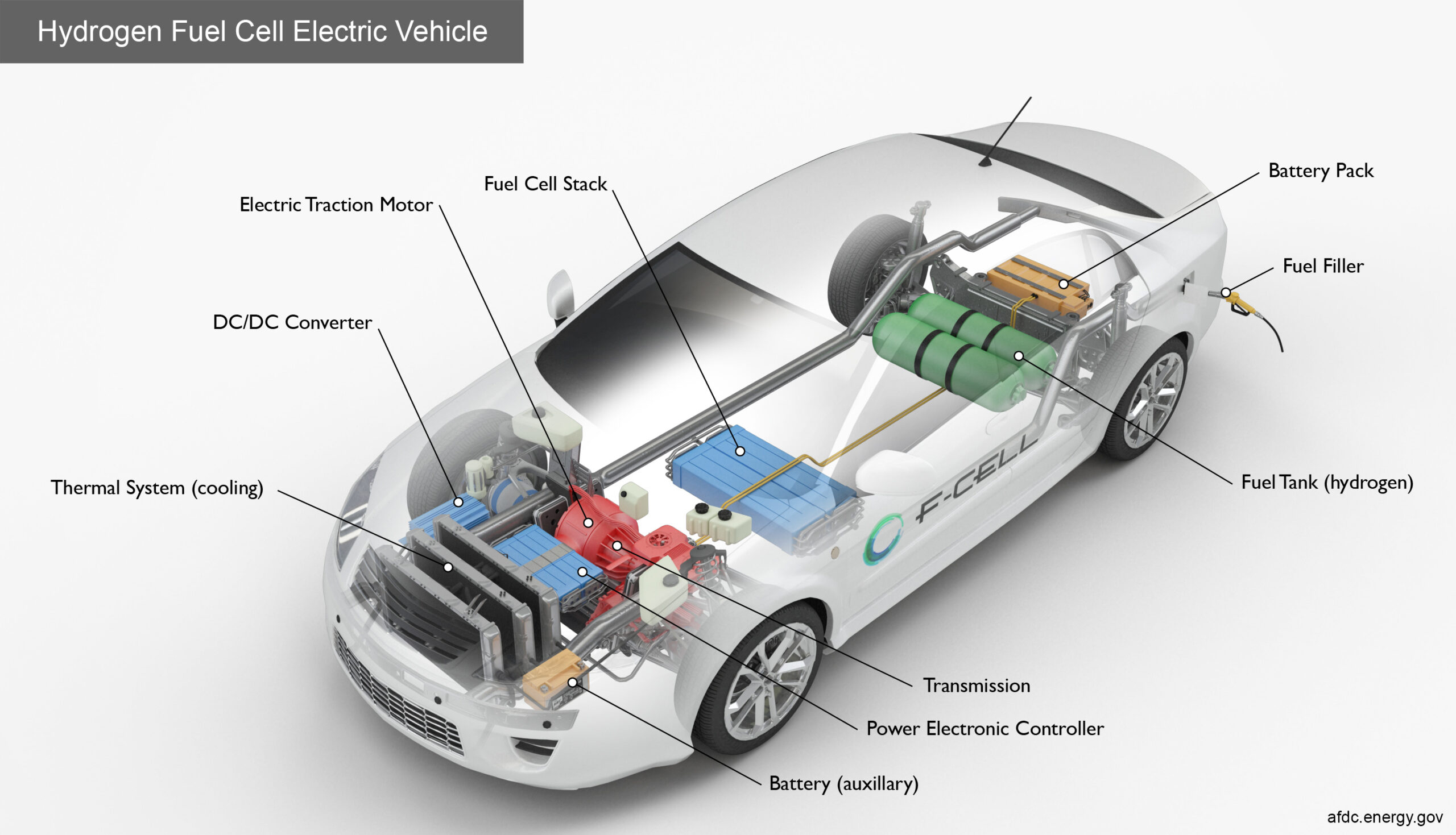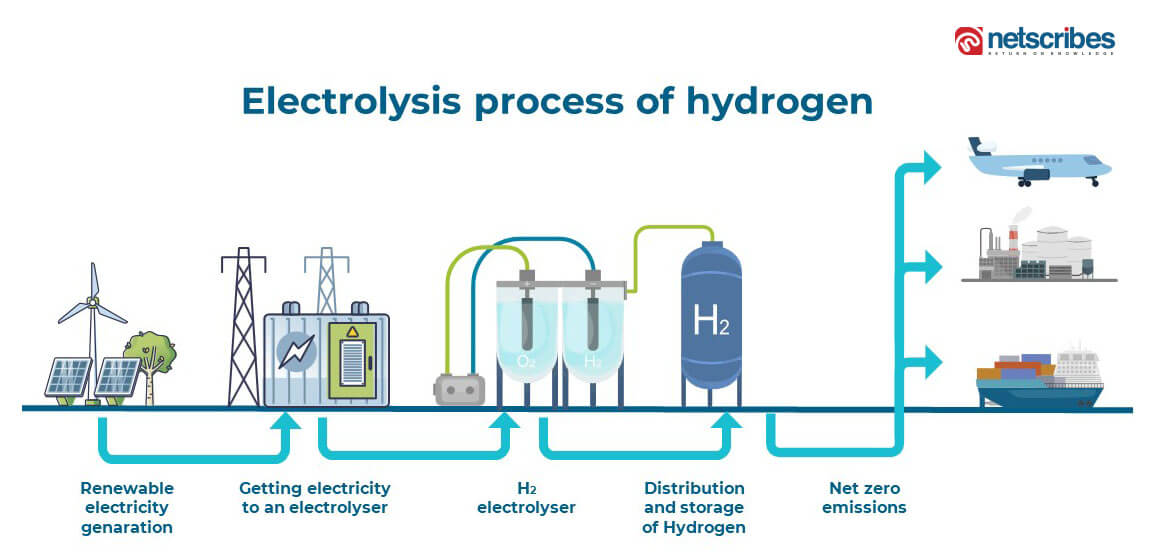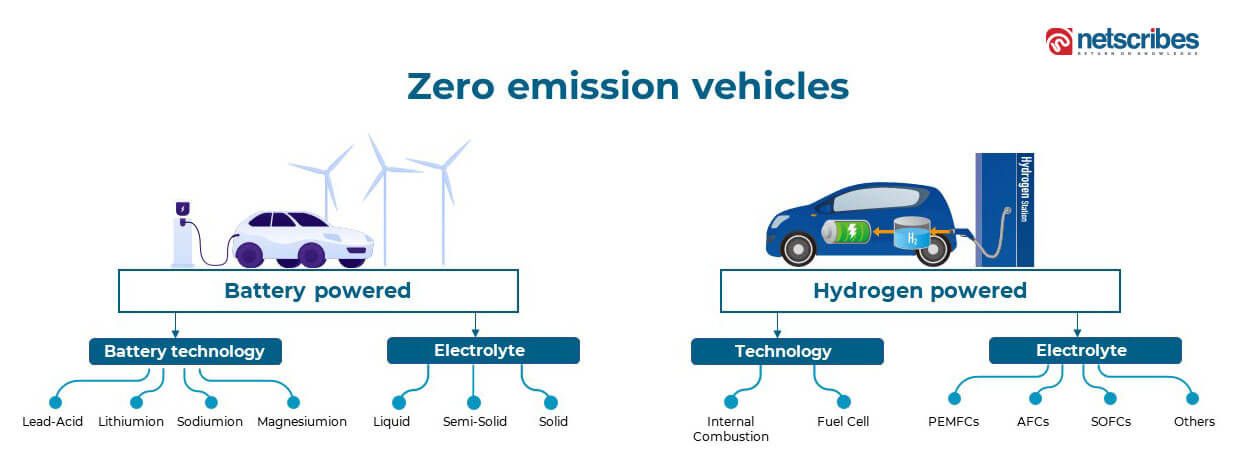
Introduction to Fuel Cell Electric Vehicles (FCEVs)
Buckle up, eco-warriors! Today, we’re diving into the revolutionary world of Fuel Cell EVs(FCEVs) – the futuristic champions of green transportation. Get ready to explore how these sleek machines are reshaping the way we move towards a cleaner, greener tomorrow.
How FCEVs Work

Fuel Cell Electric Vehicles (FCEVs) operate using a technology that combines hydrogen fuel and oxygen from the air to generate electricity. This process takes place within the fuel cell stack, where hydrogen molecules are split into protons and electrons. The electrons create an electric current that powers the vehicle’s motor, while the protons combine with oxygen to form water vapor as the only byproduct.
The heart of an FCEV is its fuel cell stack, which contains individual cells layered together to produce electricity efficiently. The hydrogen needed for this reaction is stored in high-pressure tanks onboard the vehicle. As the hydrogen passes through the fuel cell stack, it undergoes electrochemical reactions that release energy in the form of electricity.
Unlike conventional gasoline cars that rely on internal combustion engines, FCEVs use this clean and efficient method to power their motors without producing harmful emissions like carbon dioxide or pollutants. This innovative technology offers a promising solution for reducing greenhouse gas emissions and transitioning towards sustainable transportation options.
Advantages of FCEVs over Traditional Gasoline Cars
Fuel Cell EVs(FCEVs) offer several advantages over traditional gasoline cars that make them an appealing choice for environmentally conscious consumers. One of the key benefits of FCEVs is their zero-emission operation, as they produce only water vapor and heat as byproducts, contributing to cleaner air quality. Additionally, FCEVs have a longer driving range compared to battery electric vehicles, making them more practical for long-distance travel without the need for frequent recharging.
Another advantage of FCEVs is their quick refueling time, which is comparable to filling up a gasoline car – providing convenience similar to traditional vehicles. Moreover, fuel cell technology allows for efficient energy conversion, resulting in higher energy efficiency and lower operating costs over time. This not only benefits consumers in terms of savings but also reduces dependence on fossil fuels and decreases greenhouse gas emissions significantly for fuel cell .
Furthermore, FCEVs offer a smooth and quiet driving experience due to their electric powertrain while maintaining the performance capabilities expected from conventional vehicles. The advancements in hydrogen infrastructure development are also gradually addressing one of the main concerns about FCEV adoption – availability of refueling stations – leading to increased feasibility and acceptance among drivers worldwide.
Challenges and Limitations of FCEVs
Fuel Cell EV are undoubtedly a promising technology in the realm of green transportation, but like any innovation, they come with their own set of challenges and limitations.
One significant challenge facing Fuel cell EVs is the lack of infrastructure. The availability of hydrogen refueling stations is limited compared to traditional gasoline stations, making it less convenient for FCEV owners to find a place to refuel.
Another obstacle is the high cost associated with producing fuel cells. The manufacturing process involved in creating these complex systems can be expensive, which translates into higher prices for consumers looking to purchase Fuel cell EVs.
Moreover, there are concerns about the efficiency of hydrogen production. Currently, most hydrogen is produced using natural gas through a process that emits greenhouse gases – counteracting some of the environmental benefits that Fuel cell EVs offer. Fuel Cell Ev
Despite these challenges, ongoing research and development efforts aim to address these limitations and make Fuel cell EVs more accessible and efficient in the future.
Current Market Status and Future Outlook for FCEVs

The current market status of Fuel Cell Evs shows a growing interest and investment in this innovative technology. Major automakers like Toyota, Honda, and Hyundai have already introduced FCEV models to the market, with more companies joining the race to develop efficient and affordable fuel cell vehicles.
Despite some challenges such as infrastructure development for hydrogen refueling stations, advancements in technology are expected to drive down costs and increase the availability of Fuel Cell EVs in the near future. As global efforts towards reducing carbon emissions intensify, Fuel cell EVs are poised to play a significant role in achieving sustainable transportation solutions.
With ongoing research and development focusing on enhancing performance and range capabilities of Fuel Cell Evs, it is clear that these vehicles hold great promise for revolutionizing the automotive industry. The future outlook for Fuel Cell Evs looks bright as they continue to gain momentum as a viable green transportation option for eco-conscious consumers worldwide.
Government Support and Incentives for FCEVs Adoption
Government support and incentives play a crucial role in driving the adoption of Fuel Cell Evs in today’s transportation landscape. Many countries around the world are offering various initiatives to encourage consumers and businesses to transition towards greener forms of transportation, such as Fuel Cell Evs. These incentives can include tax credits, rebates, grants, or subsidies for purchasing or leasing Fuel Cell Evs.
Additionally, governments may also invest in building hydrogen refueling infrastructure to support the widespread use of Fuel Cell Evs. By providing financial assistance and creating an enabling environment for adoption, policymakers aim to reduce greenhouse gas emissions and promote sustainable mobility solutions.
Incentivizing the use of Fuel Cell Evs not only helps reduce carbon emissions but also stimulates innovation in clean energy technologies. As more governments prioritize sustainability goals, we can expect to see continued support and incentives for Fuel Cell Ev adoption in the coming years.
Impact on the Environment and Benefits of Choosing FCEVs
When it comes to choosing a mode of transportation, considering the impact on the environment is crucial. Fuel Cell EVs offer a promising solution for eco-conscious individuals. By utilizing hydrogen as fuel and emitting only water vapor and heat as byproducts, Fuel Cell Evs contribute significantly to reducing greenhouse gas emissions.
Opting for Fuel Cell Evs not only helps in combating air pollution but also reduces our dependence on fossil fuels. The production of hydrogen used in Fuel Cell Evs can be sourced from renewable energy, further enhancing their environmental friendliness.
In addition to their minimal environmental footprint, Fuel Cell Ev offer drivers a quiet and smooth driving experience with quick refueling times comparable to traditional vehicles. Choosing Fuel Cell Evs means embracing sustainable transportation without compromising performance or convenience.
Embracing Fuel Cell Electric Vehicles is not just about reducing emissions; it’s about making a conscious choice towards a cleaner and greener future for generations to come.
Comparing FCEVs to Other Green Transportation Options
When comparing Fuel Cell Evs sto other green transportation options, it becomes evident that Fuel Cell Evs offer a promising future for sustainable mobility. While challenges and limitations exist, the advantages of Fuel Cell Evs over traditional gasoline cars are significant. Government support and incentives further bolster the growth of Fuel Cell Evs adoption.
As we move towards a greener future, embracing technologies like Fuel Cell Ev will play a crucial role in reducing emissions and preserving our environment. By choosing Fuel Cell Evs, we not only contribute to cleaner air but also promote innovation in the automotive industry. The potential for fuel cell technology to revolutionize transportation is immense, making Fuel Cell Evs truly the next big thing in green transportation.
Visit US Depts of Energy’s website to know more about Cell Fuel Evs. To know more about automobile updates, visit QaWire.


